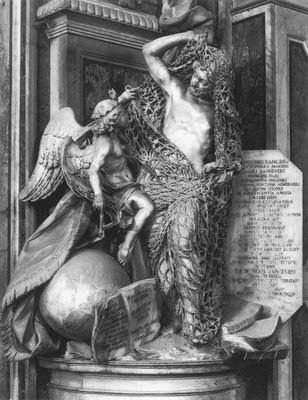
We are prone to separate what God has joined together. Evangelicals are beset by the tendency to separate doctrine and life, and to favour practice over theory.
By way of digression I ought to say that even those who frequently lament the divorce of the two, deep down know that there is a linguistic card trick being played. We are always living out of the ideas that we hold to.
Now, in reality, there is no gulf between truth and life because they never can be, and never are, divorced. The question is not whether we are living in the light of doctrines, but what doctrines are we living in the light of? What view of God, what view of the world, ourselves, sin, redemption, grace, the last things, are we being shaped by even when we are
talking about separation between doctrine and life?
To return to the main road, perhaps it would be better to say that there is an evangelical impatience with theory, doctrine, intellect, anything that seems academic, for fear that it encourages mere speculation and proves to be unrelated to life.
The trouble is that the cry for application is, in reality, just a sound, unless there is something to
apply. And for that we need truth, doctrine, knowledge. But as I have argued, truth, doctrine, and knowledge have never been absent in reality. The lingering question is always "which truth are we applying?"
What is the antidote to this way of thinking that speaks as if there is a separation of doctrine and life? How can this would be healed?
Pause and observe the almost inconspicuous recurrence of an everyday image employed by Old and New Testament writers to describe the relationship between doctrine and life. It is the simple image of
walking in a particular
way,
as the following representative passages from the NT indicates:
In
Ephesians we are reminded of how we used to walk in a state of death and disobedience (2:1-3), before being made alive by God, saved by grace through faith, and set on a new path of obedience. God has prepared good works beforehand for us to walk in (2:10). We are to walk worthy of our calling (4:1), and not walk in the way that the Gentiles do in the futility of their thinking and darkened understanding (4:17). Instead we are to walk in love (5:2), and walk as children of light (5:8), taking care how we walk (5:15)
In
Colossians we are told that just as we
"received Christ the Lord" so we are to
"walk in him, rooted and built up in him and established in the faith, just as you were taught, abounding in thanksgiving" (2:6-7).
We are exhorted to
"walk in wisdom toward outsiders, making the best use of the time" (4:5). We will only know how to do this because
"all the treasures of wisdom and knowledge" are hidden in Christ (2:3).
The Colossians heard the familiar call to walk worthy of the Lord. But notice the setting for this walk:
And so, from the day we heard, we have not ceased to pray for you, asking that you may be filled with the knowledge of his will in all spiritual wisdom and understanding, so as to walk in a manner worthy of the Lord, fully pleasing to him, bearing fruit in every good work and increasing in the knowledge of God. (1:9-10)
In
Galatians we are to walk by the Spirit since we live by the Spirit, and not gratify the desires of the flesh (Galatians 5:16, 25)
In
John's letters the same emphasis is repeated. We are to walk in the light as he is in the light, and not in darkness (1 John 1:7). Indeed we are to walk as Jesus walked (1 John 2:6).
Yet, for John, the setting for this walk is that of his
proclamation of that which was from the beginning, the eternal life, which was with the Father and which was made manifest to us (the "us" being the apostles, 1 John 1:1-2). Moreover, unless this authoritative, authentic, original apostolic message and testimony is believed then no fellowship with the Father and the Son is possible (1 John 1:3-5). The truth supplies the boundaries, map, and direction for the walk.
The same note is struck in 2 & 3 John:
I rejoiced greatly to find some of your children walking in the truth, just as we were commanded by the Father (2 John 4)
And this is love, that we walk according to his commandments; this is the commandment, just as you have heard from the beginning, so that you should walk in it (2 John 6)
I have no greater joy than to hear that my children are walking in the truth (3 John 4)
To separate truth and life, doctrine and practice, may well be a contempoary evangelical theory, but on the surface of these texts, and many others, it is an absurdity.



















